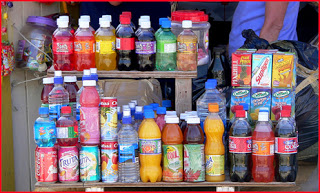As we are all well aware, COVID-19 (coronavirus) is now at pandemic status. Though data is currently limited and rapidly evolving, people with chronic medical conditions including diabetes appear to be at higher risk of more severe disease, including a higher risk of death.
We know that higher blood sugars increase the risk of infections in general. Having diabetes associated complications (eg heart disease, kidney disease) are also likely to put people at higher risk of more severe disease.
A recent article provides guidance to people with diabetes during the coronavirus pandemic.
If you have diabetes, here are some things you can do: (note much of this applies to the general population as well)
- Get or keep good control of blood sugars. Check sugars more often. Good blood sugar control may help to prevent superimposed bacterial pneumonia.
- Attention to nutrition and adequate protein intake is important.
- Exercise is good to maintain health, but avoid crowded places like gyms or pools.
- Make sure your other vaccinations are up to date (including influenza).
- Thorough handwashing with soap and water kills the virus. Alcohol based hand rubs are also useful.
- Cover your mouth and nose with your elbow or a tissue when you cough or sneeze. Avoid touching your mouth, face or eyes.
- Avoid travel.
Recommendations for people with diabetes suspected of having COVID-19 infection, as per this article: (with some editorial comments from me in brackets)
- If you have a fever, cough, shortness of breath, or runny nose, you need to notify (call) your local health authority and get tested for COVID-19. (and self isolate in the meantime. Do NOT go to an emergency medical care facility unless you need emergency care. Do NOT go to your family doctor or a non-emergency medical clinic as they are not equipped to deal with COVID-19.)
- Any affected person must be isolated for 14 days or until symptoms resolve, whichever is longer. (note – I have seen reports of needing isolation for longer until the virus is fully cleared from your system)
- Most people have mild disease and can be managed from home. Stay well hydrated. Acetaminophen (tylenol) can be used to manage symptoms. (note – caution on using tylenol if you have liver disease; also caution on use of anti inflammatory meds like advil, ibuprofen if you have kidney issues)
- People with type 1 diabetes should check for ketones frequently if fever with high blood sugar occurs.
- If you are sick, medications that can cause low blood sugar (eg insulin, sulfonylureas like gliclazide (Diamicron), glyburide, repaglinide (Gluconorm)) may need to be adjusted.
- If you are not able to stay well hydrated or need to be in hospital, metformin and SGLT2 inhibitors (like canagliflozin (Invokana), dapagliflozin (Forxiga), empagliflozin (Jardiance)) should be stopped. (See here for more on sick day management in diabetes). Medications that can cause dehydration (like diuretics) should also be stopped.
I would also add that anyone who takes insulin or sulfonylureas should have glucagon on hand in case of a severe low blood sugar. This is now available as a puff up the nose instead of an injection, see my recent blog on this.
Note that the recommendations from this article (and from me) are not meant to replace advice from your local authorities, nor are they meant to replace advice from your own health care team. I have readers from around the world, and specific guidance of who to call and where to go (or not go) for care will vary depending on where you live. In Alberta, you can take a self assessment for further guidance on whether you need COVID-19 testing, and who to call/where to go here.
The COVID-19 pandemic is changing by the day; be sure to keep up to date with your local safety guidance and health authority recommendations.
Follow me on twitter! @drsuepedersen
www.drsue.ca © 2020












